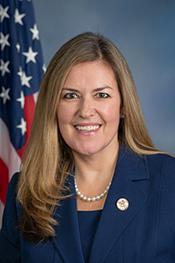0
Elijah E. Cummings Lower Drug Costs Now Act
11/1/2022, 1:49 PM
Congressional Summary of HR 3
Elijah E. Cummings Lower Drug Costs Now Act
This bill establishes several programs and requirements relating to the prices of prescription drugs, health care coverage and costs, and public health.
TITLE I--LOWERING PRICES THROUGH FAIR DRUG PRICE NEGOTIATION
The bill requires the Department of Health and Human Services (HHS) to negotiate prices for certain drugs. (Under current law, HHS may not negotiate the prices of covered drugs under the Medicare prescription drug benefit.)
Specifically, HHS must negotiate maximum prices for (1) insulin products; (2) with respect to 2023, at least 25 single-source, brand-name drugs that do not have generic competition and that are among either the 125 drugs that account for the greatest national spending or the 125 drugs that account for the greatest spending under the Medicare prescription drug benefit and Medicare Advantage (MA); (3) beginning in 2024, at least 50 such single-source, brand-name drugs; and (4) newly approved single-source, brand-name drugs that meet or exceed a specified price threshold and that HHS determines are likely to meet the spending criteria. The negotiated prices must be offered under Medicare and MA and may also be offered under private health insurance unless the insurer opts out.
The negotiated maximum price may not exceed (1) 120% of the average price in Australia, Canada, France, Germany, Japan, and the United Kingdom; or (2) if such information is not available, 85% of the U.S. average manufacturer price. Drug manufacturers that fail to comply with the bill's negotiation requirements are subject to civil and tax penalties.
TITLE II--MEDICARE PARTS B AND D PRESCRIPTION DRUG INFLATION REBATES
The bill also requires drug manufacturers, subject to civil penalties, to issue rebates to the Centers for Medicare & Medicaid Services (CMS) for covered drugs under Medicare that cost $100 or more and for which the average manufacturer price increases faster than inflation.
TITLE III--PART D IMPROVEMENTS AND MAXIMUM OUT-OF-POCKET CAP FOR MEDICARE BENEFICIARIES
The bill reduces the annual out-of-pocket spending threshold, and eliminates beneficiary cost-sharing above this threshold, under the Medicare prescription drug benefit. Additionally, prescription drug plan sponsors must allow certain beneficiaries to make coinsurance payments in periodic installments, in accordance with CMS requirements.
TITLE IV--DRUG PRICE TRANSPARENCY
Drug manufacturers must report, subject to civil penalties, specified information for certain drugs that cost $100 or more and that are covered under Medicare or Medicaid, based on the rate of price or spending increases. Among other things, manufacturers must report a qualifying price increase at least 30 days before the effective date of the increase; HHS must publish the information on its website the day the increase takes effect.
TITLE V--PROGRAM IMPROVEMENTS FOR MEDICARE LOW-INCOME BENEFICIARIES
The bill expands eligibility for certain premium and cost-sharing subsidies for low-income beneficiaries under the Medicare prescription drug benefit. For example, the bill (1) raises the maximum allowable income for beneficiaries to qualify, and (2) allows certain residents of U.S. territories to automatically qualify.
TITLE VI--PROVIDING FOR DENTAL, VISION, AND HEARING COVERAGE UNDER THE MEDICARE PROGRAM
The bill also expands Medicare coverage to include (1) dentures and dental and oral health services, including basic and major treatments (as determined by the CMS) as well as specified preventive and screening services; (2) hearing aids and hearing rehabilitation and treatment services; and (3) eyeglasses, contact lenses, and vision services, including routine eye examinations and contact lens fittings.
TITLE VII--NIH, FDA, AND OPIOIDS FUNDING
The bill provides additional funds for several public health programs. Among other things, the bill (1) provides specified funds for innovation projects at the National Institutes of Health through FY2030 and for innovation projects at the Food and Drug Administration through FY2029; and (2) establishes the Opioid Epidemic Response Fund to support HHS programs and initiatives, including the State Opioid Response Grant Program.
Additionally, HHS must take a series of actions relating to health care administrative costs. Specifically, HHS must develop a strategy and take associated action to reduce unnecessary costs and administrative burdens in the health care system, including Medicare, Medicaid, and the private health-insurance market, by at least half over a period of 10 years. HHS must also award grants so that states may establish commissions targeting such costs.
TITLE VIII--MISCELLANEOUS
The bill also establishes and revises several other health care programs and requirements.
For example, the bill (1) expands guaranteed issue rights with respect to Medigap policies (Medicare supplemental health-insurance policies); (2) provides specified funds for the Community Health Centers Fund through FY2025; (3) establishes grant programs to support mental health and trauma services in schools, as well as career development programs for health professionals; and (4) requires pass-through pricing models, and prohibits spread-pricing, for payment arrangements with pharmacy benefit managers under Medicaid.
Additionally, the CMS must issue regulations that require direct-to-consumer television advertisements for all covered drugs and biologics under Medicare and Medicaid to include the list price of a 30-day supply or for a typical course of treatment. (On May 10, 2019, the CMS issued a final rule titled Medicare and Medicaid Programs; Regulation to Require Drug Pricing Transparency. The rule requires direct-to-consumer television advertisements for covered drugs and biologics under Medicare and Medicaid to include the list price of a 30-day supply or for a typical course of treatment, if the list price is at least $35 per month. The rule was scheduled to take effect July 9, 2019; however, a federal court blocked implementation, citing a lack of statutory authority.)




